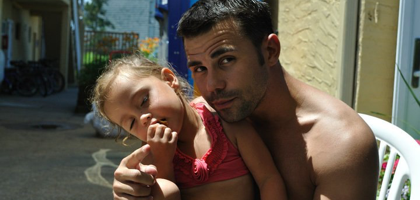
Many of you reading this have most likely never had to be overly-involved in the Probate and Funeral process after experiencing a devastating loss. I am, unfortunately, becoming somewhat of an expert in the matter. When you know your funeral director, his/her entire family by first name, and they are stored in your mobile phone contacts, you know life has been throwing you a few curveballs.
I was honored to have been part of my grandfather’s funeral arrangements, as my mom and aunts were kind enough to include me as they knew how important he was to me. What I did not anticipate was that, somehow, this was the training wheels for what was yet to come.
I figured I would take a few minutes out to cover briefly some things you should be aware of and probably think about… not in a morbid sense, but in a “this is just reality” kind of way. If you are a parent, this goes doubly: The impact of not having your affairs in order can create a most troublesome burden upon those you truly love for many months—in my case, even years—after a person has left this world.
The first thing and most important thing you need to be aware of: Funerals are EXPENSIVE. Doubly so if you happen to lose somebody “before their time” based upon the total number of people who will be affected and attend the funeral. A modest funeral is going to run you $20,000.00 – $25,000.00, all said and done. In these economic conditions, the last thing you want is your surviving family to be thinking, “Can I even afford to bury the person I love so much?”
In my opinion you pretty much need to have, at a bare minimum, the following:
1. A Will – If you do nothing else, be sure you have a will. It does not have to be complicated, but I will tell you if you don’t have one, the court system will be sure to show you how complicated it will be, and it’ll fall squarely on the person who is grieving your loss the deepest. Even if you go online and do the most basic will, it is better than having nothing at all. Be sure to keep this in a safe place—if you live in NYC, do NOT put it in a safety deposit box at a bank. We chose to keep ours in our lawyer’s safe with explicit instructions to both our lawyers, executors, and successor executors.
2. Pre-planning Insurance Policy – Save your family the “can I afford this?” question. Funeral homes have insurance policies that are paid over time in installments that will cover the entire funeral expense from A to Z. It is like a morbid traveler’s check that your family signs over to the funeral home but ensures that all your arrangements are paid in full, or at least mostly paid, such that your are not unduly putting anybody into economic duress at the worst possible time.
3. Burial Plots – When my mom died, we realized that as organized as she was, we had nowhere for her to be buried. Luckily my grandfather, for reasons unknown to us, had purchased three plots at some point in his life—we “lucked out.” Had we not had that, I am not sure what we had done at the time. I didn’t realize until I called to make pre-planning arrangements for me and David, but cemeteries are mostly sold out. St. John’s has been sold out since 1986. We only managed to get the plots where David is buried now because a family moved out of state and put their four plots up for sale. I, with a day’s notice, had to come up with $10,000.00 for the plot, or it was going to the next person on the list. You don’t want to go through all the pain and suffering to find out you have to bury somebody you love twenty towns over in an unfamiliar place because it “never occurred” to you to do so.
That is the top 3. But other things you need to think about is the amount of time you are about to volunteer your family to put in for you. Getting David’s suit out of his apartment required three trips to the court house, $1,800.00 cash, two police escorts, and 200 miles of travel. I was not allowed to touch anything in his apartment except was explicitly detailed in court order to enter his apartment, and you have to name all the people who will be with you. Otherwise they are required to wait outside.
Now this will not be the case if you are married… it is a bit less complicated, but if you are single or a sibling, expect to jump through a lot of hoops. My biggest recommendation here is to muster up all the patience you have in the world, and be sure to have somebody with you during this process. There will be a lot of “hurry up and wait,” and there is absolutely nothing you can do about it.
Other things you will need are death certificates, preliminary letters testamentary, your checkbook, and your I.D. The more organized you are, the more likely you will have a semi-smooth experience. Under no circumstance should you expect things to go smoothly in any way. You will only let yourself down. Keep every receipt in a safe place, and make copies. Be sure to have original and official court-issued copies of the death certificate and letters testamentary, as banks and credit cards may require you to provide court-sanctioned copies.
Probate, or Surrogates Court (that is probate in NY), is important. I chose to NOT use a lawyer in this regard as the will is simple in nature, but I also have a great network of lawyers who I could refer to when I needed it. I also relied on the web. If you don’t know what a word means, look it up and then ask questions. I will say this: While the Surrogates Court had me jump through a lot of hoops, the people at 31 Chambers were very helpful. I did start to come apart at the seams during one particular visit, and that is where having a friend present was helpful. The key thing to remember when at probate is that the person sitting on the other side of the desk has probably the of the worst jobs on the planet. All day long, they get to look at the faces of somebody who has lost somebody important to them. I was lucky enough to have a very kind person named Dawn who walked me through each individual step along the way, and for that I am grateful. While she did have to have me come back six separate times, she was always sympathetic and helpful. Ask questions when you are there. Get all the forms you may need, and get even more. There is a ton of paperwork that needs to be filled out, and it is imperative it is filled out correctly. The probate court is there to help you.
If you are going to be an executor, I suggest picking up a book called The Executor’s Guide. It is released by NOLO (www.nolo.com). It is a group of lawyers who got together and basically built a more thorough _______ for Dummies. Accepting the responsibility of being an executor is a very important job: Essentially, you are becoming the official representative of the person who you’ve just lost, and each and every decision you make can affect the entire outcome of an estate. It is a sucky job, but extremely important.
Other things that will come up are headstones. You may have real estate, automobiles, jewelry, stocks and bonds, bank accounts. Pull any sort of official documentation into a safe, consolidated space. I use primarily electronic transactions. David was the exact opposite. Everything was on paper, and I had to sift through about hundred pounds of paper to find the things I was looking for. Tax returns and his/her accountant are a good way to figure out assets or liabilities that you may not be aware of.
This is only the tip of the iceberg, but it’s a starting place.
Above all else, talk with your family. This doesn’t have to be a bad conversation. In fact, for me it was a healthy outlet to discuss “What If” scenarios with David after Mom passed away. Talk with your wife or husband, talk with your children (age appropriate of course), talk with your siblings. You can always change your mind later, but leaving some general instruction to those whom you may have left behind when you pass allows those who live on to know they are doing what “you would have wanted.” And that is one of the ways in which we honor those whom we have lost.
There is a natural cycle to things. As we are born, we will most surely die, but I can assure you that the passing of somebody important to you will always catch you off guard no matter how prepared you are.
Prepare for the worst, and hope for the best.


